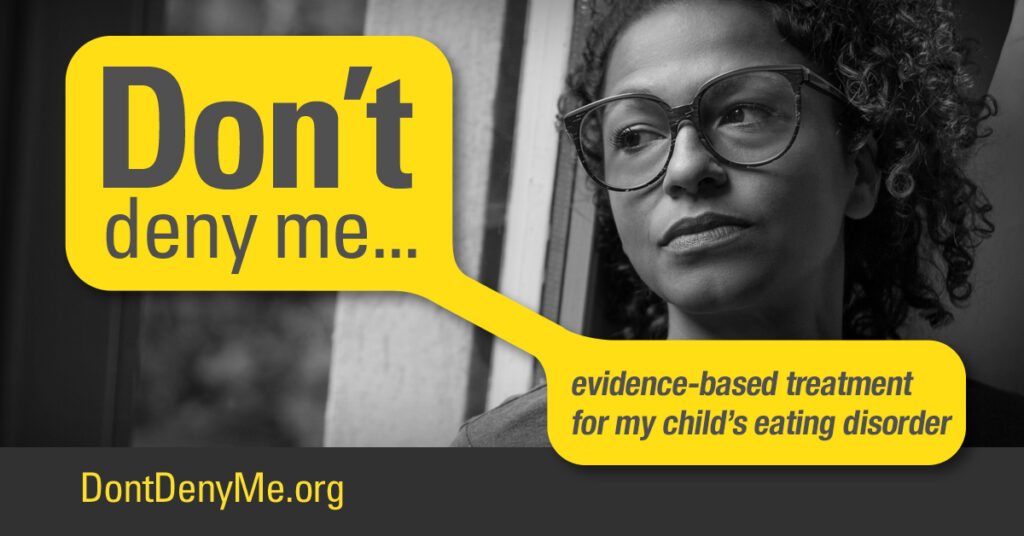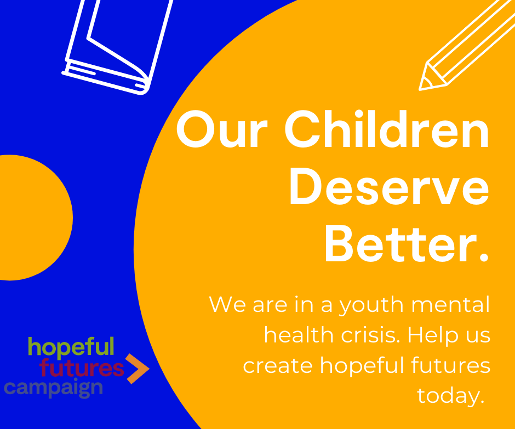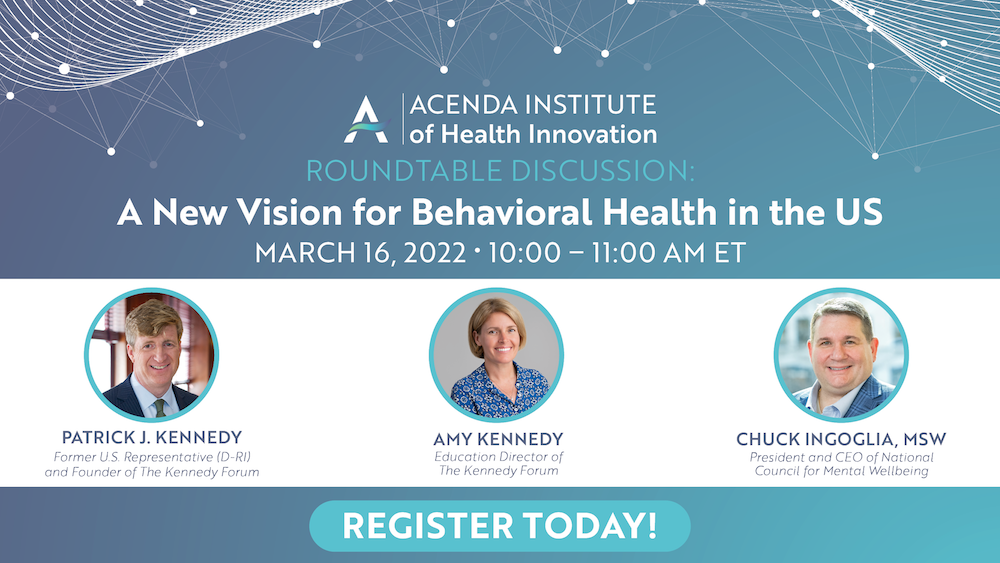This month, as a partner of the Hopeful Futures Campaign, The Kennedy Forum helped to launch “America’s School Mental Health Report Card,” a new report that grades all 50 states and Washington D.C. on school mental health policies. In addition to the rankings, it highlights programs in some states that stand out as models for positive change. The campaign will use the results of the report cards to prioritize its policy and advocacy efforts in 2022 and beyond. More below.

Policy Pulse
The Kennedy Forum spearheaded a letter to the Pima County, Arizona (Tucson) Board of Supervisors addressing Pima County’s decision to “opt out” of the Mental Health Parity and Addiction Equity Act. Read it here. This is part of a nationwide effort to shine a spotlight on discriminatory practices that often make it difficult for state and city employees (including first responders) to get help for mental health and addiction challenges. Read more about opt outs here.
Our February blog post describes how a family leveraged their parity rights—after being denied treatment coverage for their child’s oppositional defiant disorder, autism, pervasive developmental disorder, and anxiety—to pursue legal action against their health plan. Read it here.
The Kennedy Forum and the American Society of Addiction Medicine (ASAM) partnered to lead a letter to the Senate Ways & Means Committee this month, urging the committee to close large mental health and substance use disorder coverage gaps in Medicare and Tricare, and to apply parity to these programs as well as traditional Medicaid. The Kennedy Forum and ASAM helped lead a previous letter to the Senate Finance Committee last fall. Both committees recently held hearings on mental health care. During the Senate Finance Committee’s hearing, Dr. Sharon Hoover, co-director of the National Center for School Mental Health, said: “Our traditional approach to mental health care has not leveraged the natural venues where our young people access support; it is akin to waiting for toothaches, cavities, and abscesses until a child gets proper dental care. Instead, we should do the equivalent of passing out toothbrushes and providing preventive and early dental care, by offering every child in every school the social, emotional, and mental health supports they need to be successful.”
We endorsed the Opioid Treatment Access Act, which was introduced by Senators Edward J. Markey (D-MA) and Dr. Rand Paul (R-KY.) The legislation would revise outdated regulations on methadone treatment for opioid-use disorder (OUD) by reducing the time in treatment required for patients to receive take-home doses of medication and allowing pharmacies to dispense methadone for OUD treatment for the first time. Read more here.
On the heels of a scathing report from DOL, HHS, and the Department of Treasury, which issued an indictment on health plans’ failure to comply with Federal Parity Act requirements and asked Congress for greater enforcement authority, The Kennedy Forum—along with 53 other leading mental health organizations—called on Congress to pass civil monetary penalty authority for parity violations in the final Build Back Better Act. Read the letter here.
In a new blog post, we discuss how certain local and state government plans have opted out of the Federal Parity Act, foregoing critical protections for employees and their family members. Read the full blog here.
Campaigns & Resources

The Kennedy Forum’s Don’t Deny Me website now features updated resources to help consumers and providers understand patient rights to equal insurance coverage for mental health and addiction treatment.
View and download a new printable flyer here, and download updated graphics for Facebook, Twitter, Instagram, LinkedIn(links prompt file download).
Additionally, if you your organization would like to receive a monthly Don’t Deny Me social media toolkit containing timely messages and accompanying image/video files, email amber@thekennedyforum.org to sign up.
The latest round of Don’t Deny Me campaign posts for partner organizations addressed a recent report to Congress on mental health parity and National Eating Disorder Awareness Week. See sample posts here and here.
A new report from the Stanford-Lancet Commission on the North American Opioid Crisis calls for immediate action to quell the rising tide of addiction and overdoses in the U.S. and Canada. Since 1999, more than 600,000 people in both countries have died of an opioid overdose, exceeding the mortality rate during the worst of the HIV/AIDS epidemic, the report says. The number of U.S. and Canadian deaths due to opioids is also greater than the number of those countries’ citizens who died in World War I and World War II. Estimates of the epidemic’s financial costs have reached $1 trillion. The commission’s model projects that, from 2020 to 2029, opioid deaths will total 1.22 million in the U.S. alone if no new action is taken to address the epidemic. Read more about the report, which offers in-depth solutions, here.
Have you or someone you know had a hard time finding mental health or addiction care that your insurance will pay for? Or a provider who doesn’t have a long waitlist? If so, please take this important survey from NORC at the University of Chicago. Your confidential responses could help drive policy change that would make a difference for everyone. The survey is available in English or Spanish and takes about 5 to 15 minutes to complete. You can respond for yourself or on behalf of someone you know, such as a family member, a friend, or a patient. Get started.
This month, MindSite News posted an insightful timeline of parity laws and enforcement. View it here.
The Upswing Fund’s latest report, “Addressing the Adolescent Mental Health Emergency,” provides action-oriented recommendations to close gaps in care for the most vulnerable adolescent populations: adolescents of color and LGBTQ+ youth. We were pleased to see community-based organizations highlighted in the recommendations. Youth don’t always seek help from clinical and traditional health care centers. It is critical that we know what community-based organizations need to meet increases in demand. View the report here.
Youth Mental Health Focus
In a new blog post in observance of National Eating Disorder Awareness Week, The Kennedy Forum education director Amy Kennedy discusses the role social media platforms and insurance companies play in preventing or perpetuating eating disorders among youth. “We have to do everything we can to normalize a national conversation concerning something that affects so many families.” Read the blog post here.
We recently teamed up with a coalition of 16 other leading mental health organizations to form the Hopeful Futures Campaign—an initiative focused on better school-based mental health services. This month, the group released “America’s School Mental Health Report Card,” a national report that grades all 50 states and Washington D.C. on school mental health policies. Each mental health report card also includes a range of policy solutions that states can take to have a positive impact on their students. Learn more and view the report here. (View coverage in USA Today here.) The report found that states as diverse as Idaho, Minnesota, California, and North Dakota have taken positive steps that support school mental health, but also revealed that all states show gaps. Only D.C. and Idaho exceed the nationally recommended ratio of one school psychologist for every 500 students, while five states—West Virginia, Missouri, Texas, Alaska, and Georgia—have only one school psychologist for well over 4,000 students. To accompany the report, the Hopeful Futures Campaign also debuted an online action center where students, parents, and anyone who wants to make a difference can learn about the state of school mental health where they live, then take direct action to improve their state’s response to youth in crisis.

In the News
Patrick Kennedy was recognized in People magazine for 11 years of sobriety. Read the article here.
Patrick spoke to MindSite News about ramifications of the recent Congressional report from DOL, HHS, and the Department of Treasury addressing the Mental Health Parity and Addiction Equity Act. Read the article here.
David Lloyd, The Kennedy Forum’s senior policy advisor, spoke to Politicoabout Congressional efforts to enforce mental health parity. “This deterrent effect and ensuring people can get the care they need when they need it is really critical because, otherwise, it’s kind of a whack-a-mole situation where it becomes very difficult to police.” Read the article here. On a related note, Patrick Kennedy responded to a bold claim within the article with the following Twitter thread: “Contrary to what a lobbying group in this article claims, mental health providers care deeply about their work and want better in-network access to care for EVERYONE. Trying to shift the blame for parity non-compliance to them is reprehensible…We all know that antiquated reimbursement rates are the REAL problem.”
Recordings
On February 1, Patrick joined President Bill Clinton and other leaders from the faith and public health communities for “Bridging Faith and Science to Combat the Overdose Crisis.” The virtual event was hosted in partnership by the Clinton Foundation, the Johns Hopkins Bloomberg School of Public Health, and The Center for Responsible Leadership. Watch it here.
On February 15, Patrick spoke during the second session of the Kennedy-Satcher Center for Mental Health Equity’s five-part webinar series, “Criminal Justice and Equity: Bridging the Gaps.” Participants explored behavioral health equity and incarceration. Learn more and watch a recording here.
Upcoming Events
Criminal Justice and Equity: Bridging the Gaps (Part 3) Trauma-Informed Systems for Justice-Involved Individuals
March 15, 2022
The third session of the Kennedy-Satcher Center for Mental Health Equity’s five-part webinar series, “Criminal Justice and Equity: Bridging the Gaps,” on the landscape of inequities that affect justice-involved individuals.
A New Vision for Behavioral Health in The U.S.
March 16, 2022
Patrick and Amy Kennedy will participate in Acenda Institute of Health Innovation‘s roundtable discussion on critical issues in behavioral health. Topics will include evidence-based and promising practices, policy and advocacy, and payment models.

Inaugural Psychiatry Summit 2022
March 24-26, 2022
Join health care professionals from around the world for this unique virtual opportunity to enhance knowledge and improve patient outcomes. U.S.-based and international experts will discuss the latest advances in the diagnosis and treatment of a wide range of psychiatric illnesses, debate controversies in the field, and share clinical knowledge. Patrick’s featured keynote: “The Pursuit of Mental Health Equity,” will air March 24th at 10AM EST.
“Hiding in Plain Sight”: The Youth Mental Health Crisis
March 29, 2022
The Democratic Lieutenant Governors Association and The Kennedy Forum will host a preview of Ken Burns’ new documentary about youth mental illness and a panel discussion with members of the DLGA; Amy Kennedy, education director of The Kennedy Forum; and Bill Smith, CEO of Inseparable. (This is a closed event).

